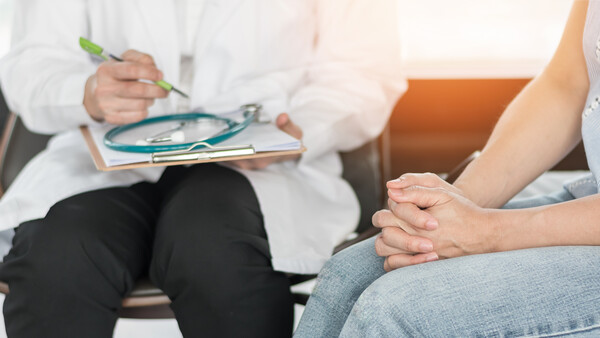Many women who experience urinating problems think they have cystitis and take antibiotics. In reality, however, a “bladder symptom” often appears in the bladder, a muscle bag that stores urine, rather than cystitis, a condition in which bacteria invade the bladder and cause inflammation.

In the YouTube channel “I am a doctor,” Dr. Yoo Jung-hyun, head of the Department of Obstetrics and Gynecology at Bundang Jesaeng General Hospital, said, "Cystitis is when bacteria enter and cause inflammation. As the bladder becomes drier during menopause, it shrinks, leading to various bladder symptoms."
Rather than assuming that it is cystitis and taking antibiotics, it is necessary to distinguish between “cystitis” that can be treated with antibiotics and “bladder symptoms” that cannot. In other words, if you have difficulty passing urine, residual urine after urinating, or pain when urinating, it is better to identify and treat the exact cause.
"If I do a urine test and a bacteriological test, many women are normal in urine tests and have no bacteria in the bacteriological test," Dr. Yoo said. "If they take antibiotics, it seems to get better for a while, but most of these women continue to have symptoms over and over again."
People can know if they have cystitis by taking urine and bacteriological tests. When they take a bacteriological test, the most common bacteria are usually in their body.
"Most often, they are bacteria, such as E. coli and streptococcus, which grow in our body," Yoo explained.
There are reasons bladder symptoms are often mistaken for cystitis in women.
"Women's genital anatomy is such that urination, menstruation, and feces are all within a short distance of one to two centimeters of each other," Yoo said. “In addition, women spend a lot of time sitting in tight underwear and pants these days, so it's an easy environment for bacteria to grow, especially when there is a lot of blood vessel congestion, such as during menstruation or pregnancy."
Women who think they're getting cystitis too often may want to take a look at their lifestyle or check for other conditions, such as endometriosis (when endometrial tissue grows outside the surface of the uterine lining), he explained.
"Young women in their 20s drink a lot of cold coffee during the day and alcohol at night, so their bodies are always dehydrated. Also, women who have menstrual pain due to endometriosis often have bladder contractions," Yoo noted. "If there are no bacteria in the urine test, it is usually necessary to check whether there is endometriosis or other problems."
Cystitis is especially common after menopause, and there is also a reason for that.
"At such a time, blood circulation to the pelvis decreases, the bladder shrinks more, causing the bladder function to decrease and symptoms to increase," Yoo said. "For such women, treatment with female hormones in addition to antibiotics will help them more quickly and prevent recurrence."
Bladder symptoms can also be exacerbated by the wrong way of dealing with frequent urination. A common example is urinating every hour or so just because you have to. Some women believe that it is right to urinate every time they feel the need to urinate, but this is not the case.
"Holding urination is unhealthy only when you hold it for six to seven hours,” Yoo said. "The function of the bladder is to store urine. You need to store it for two to three hours, then the bladder stretches and shrinks. However, if you urinate every hour, you don't store urine, and the size of your bladder decreases."
Even if you suffer from frequent urination, you shouldn't go to the bathroom again for at least two hours after your last urination. This will help resolve frequent urination's "bladder symptoms" and prevent them from worsening.
"Normally, you should hold your urine for at least two hours during the day," he said. “However, if you urinate every hour because of urgency, you cannot sleep at night. If you urinate for at least two hours at intervals, the symptoms of a constant urge to urinate will disappear. Medication alone cannot produce such results."

